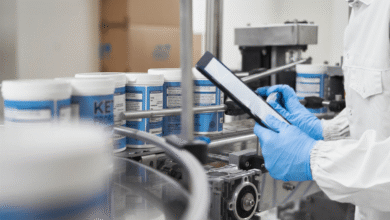Data Analytics Services for the Healthcare Industry: Benefits and Use Cases

In the healthcare industry, data analytics is revolutionizing how service providers optimize operations and deliver personalized patient care.
With smart evaluation of vast datasets from health records and clinical research, healthcare clinics can fetch actionable insights to manage various challenges.
Data analytics services hold a profound importance in the healthcare industry as they support the better allocation of resources and reduce discrepancies. It includes predictive analytics to identify the potential risks and supports comprehensive chronic disease management.
By adopting appropriate data analytics plans, healthcare providers can add innovation to their regular operations and support enhanced patient care. We discuss here the benefits and use cases of data analytics for the healthcare industry.
Benefits and Use Cases of Data Analytics for the Healthcare Industry
Data analytics in the healthcare industry involves the smooth analysis of complex datasets for efficient use and improved decision-making. The services include the use of advanced tools like AI (Artificial Intelligence), ML (Machine Learning), and predictive modeling to extract details from the raw data.
This improves the overall patient care at the healthcare facility and reduces operational costs. Let us explore the top benefits & use cases of data analytics solutions for the healthcare industry –
- Superior Patient Care
Data analytics support healthcare organizations to deliver relevant patient care as per individual needs. It ensures personalized treatment through the evaluation of patient data, lifestyle reports, and clinical insights. The accuracy levels of the diagnosis improve significantly with data analytics and deliver high-quality patient outcomes.
Use Case: Healthcare organizations can make precise decisions related to medication with data analytics. For example, Oncologists take the help of data analytics for the identification of genetic markers in cancer people. With appropriate data evaluation, medical experts can select relevant treatment procedures that target notable mutations to reduce the side effects.
- Proactive and Preventive Care
With the assistance of data analytics, healthcare experts can anticipate potential health hazards before their manifestation. Such a proactive approach in healthcare helps in the mitigation of risks and lowers hospital admissions. This contributes to the overall improvement of patient care in the region. Preventive care ensures the identification of health issues that can trouble individuals in the future.
Use Case: The data analytics tool is used by healthcare experts to identify the chronic risks associated with patients like heart issues or diabetes. For example, the healthcare systems evaluate data from different sources to trigger quick interventions for preventive medications.
- Improves Operability and Decision-making
The data analytics solutions support seamless operability in hospitals and clinics to improve resource diversification and streamline workflows. It can help forecast the volume of patients and support efficient patient care with flexible use of medical tools. Thus, the healthcare facility supports the easy adjustment of medical staff & bed occupancy and reduces the waiting period.
Use Case: Clinics and hospitals use the data analytics tools and business intelligence services to predict the trends of patient admission during specific seasons. With a thorough evaluation of the historical data, hospitals can prepare suitable staffing schedules and manage the inventory efficiently.
- Enhances the Diagnostic Results
Data analytics supports diagnostic accuracy for the identification of specific patterns that might not be visible in clinics and hospitals. The AI-backed diagnostic tools ensure the analysis of large datasets, lab results, and patient symptoms to locate specific health conditions. With the assistance of accurate diagnostic results, healthcare providers can commit to faster medical treatment.
Use Case: For example, Radiologists use AI-backed data analytics tools to evaluate X-rays, CT scans, and MRIs. The algorithms used in such tools support the early detection of neurological troubles and improve diagnostic accuracy.
- Real-Time Monitoring and Emergency Support
The integration of data analytics tools in Healthcare tools supports real-time monitoring of people and supports them in dealing with chronic health conditions. It helps patients to get hospital admission instantly for emergency needs. This ensures early detection of health concerns and allows immediate intervention for proven solutions. With the help of real-time monitoring, service providers can solve various health troubles with impunity.
Use Case: Tools like wearable devices ensure superior monitoring of the heart rate and oxygen levels, particularly for patients facing chronic health issues or in need of critical care. They provide real-time analytics reports to detect the emergency situation and allow immediate intervention.
- Supports Reduction of Operational Costs
The other significant benefit of data analytics is its ability to lower the cost linked to quality patient care. They support the identification of errors, redundant procedures, and unnecessary tests, so healthcare providers can reduce expenses and improve the financial sustainability of healthcare centers.
Use Case: For example, the data analytical tools drive supply chain management to ensure the availability of critical medical supplies. Healthcare facilities can reduce the waste of healthcare facilities and prevent any kind of costly breakdowns. Hospitals and clinics can optimize the resources in a better way for critical results.
- Fraud Detection and Risk Management
Frauds are common with healthcare services like fraudulent claims, inaccurate billing, higher costs, etc. The data analytics tool supports the identification of anomalies & patterns that indicate fraud activities. They also protect the healthcare providers against any kind of risky issues.
Use Case: For example, insurers prefer data analytics services to flag irregular billing patterns, like detection of the high claims for health treatment. Such tools rely on advanced algorithms for the identification of fraud cases and reduce financial losses.
Summing Up!
Data analytics has turned out to be the game-changer in the healthcare industry, offering unparalleled support for patient care and improving the operational efficiency of the workplace. We have highlighted here some of the informative use cases showcasing the use of data analytics services in the healthcare industry.
The use of data analytics services helps healthcare organizations address the current challenges and also paves the way for future patient care. The transformative potential of data analytics is undeniable, making it an essential tool for the healthcare industry’s growth and evolution.
Hire data analytics service provider with the record of delivering superior operational support for the healthcare industry.




